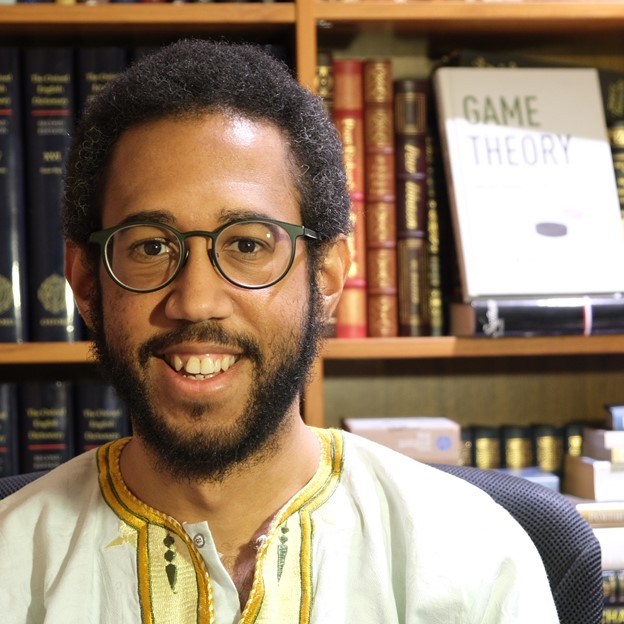
Dr. Abdel Halloway | Halloway Lab
Bio:
I am an assistant professor in the Department of Biology at Case Western Reserve University. I use theoretical methods to study the interplay between ecology and evolution – how evolution structures ecological communities and how ecology influences trait evolution. I am primarily interested in two topics: (1) the drivers of multispecies coexistence in ecological communities and (2) behavior as an adaptation and its influence on ecological processes and systems. I examine these topics using evolutionary game theory, a field of mathematics that frames evolution through reciprocal ecological interactions between variants forming a natural theoretical link between ecology and evolution.
As a native-born Chicagoan, I received both my bachelor’s in science and PhD from the University of Illinois at Chicago under the supervision of Dr. Joel S. Brown. During that time, I received the National Science Foundation Graduate Research Fellowship. Afterwards, I started my postdoctoral studies at Purdue University in the lab of Dr. Gordon G. McNickle, where I received the National Science Foundation Postdoctoral Research Fellowship in Biology to study the ecological and environmental conditions that facilitate mutualism evolution, and subsequently transferred to the University of Illinois Urbana-Champaign where I was additionally supervised by Dr. Katy D. Heath.
Abstract:
Evolution by natural selection is a process by which a species’ traits change over generational time. Such traits govern the species’ interactions and thereby influence its ecology. As well, ecology in the form of biotic and abiotic interactions form the context for natural selection, leading to an interplay between ecology and evolution. Such a feedback can be understood mathematically using the lens of evolutionary game theory which sees how interactions between variants lead to differential fitness. In this talk, I explore such interplay using the three main ecological interactions: competition, predation, and mutualism. Regarding competition, I show how disruptive and stabilizing selection structure ecological communities. Regarding predation, I show how adaptive vigilance behavior structures trophic systems in parasitized and marine systems. Regarding mutualism, I explore how competition between mutualists can hinder mutualism evolution and how the mutualism-parasitism gradient creates modularity in legume-rhizobia networks.
Watch the seminar here!
